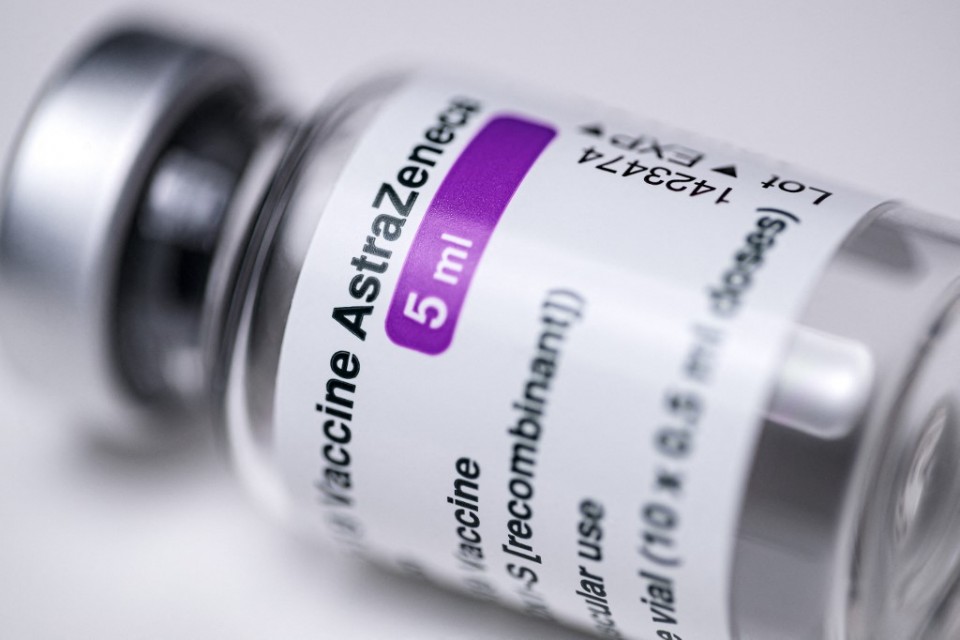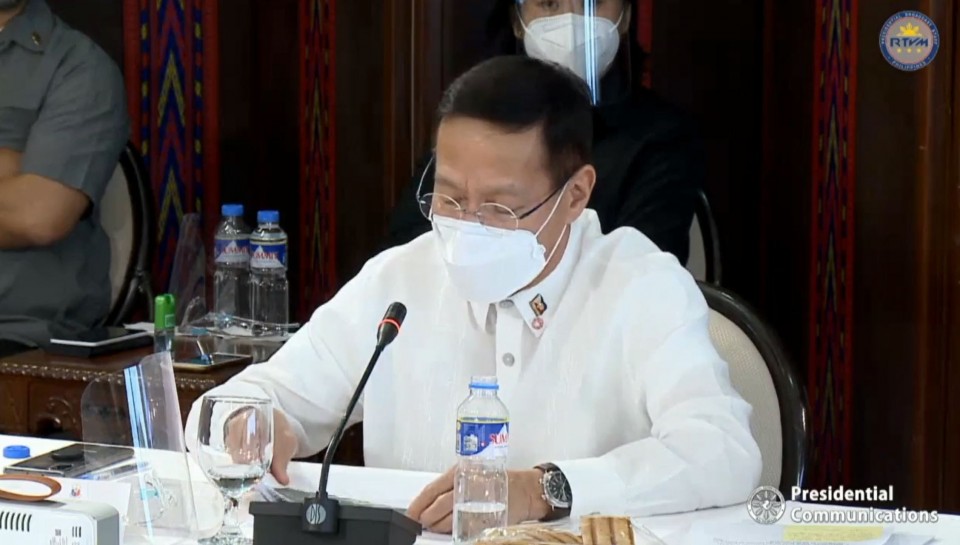DOH and FDA: “No indication for the PHL to stop rollout of AstraZeneca vaccines” despite suspension of AstraZeneca use in Europe

(Eagle News) – The current 525,600 doses of AstraZeneca vaccines will be used as the first dose for health care workers to further expand the coverage of the country’s vaccine roll-out, according to the Department of Health (DOH).
The DOH also assured that it would be closely monitoring the vaccines used in the Philippine rollout amid the suspension in several European countries on the use of AstraZeneca following reports of blood clot in some of those who received the jabs.
The DOH and the Food and Drug Administration (FDA), explaining the decision to use the AstraZeneca vaccines, said that there was “no indication for the Philippines to stop rollout of AstraZeneca vaccines” for now.
“The DOH, NTF (National Task Force) and FDA are closely coordinating on this matter. The public is assured they will closely monitor all deployed vaccines,” a DOH statement said.
The DOH also said tnat the European Medicine Authority (EMA) had “also emphasized that there is currently no indication that vaccination has caused these conditions, which are not listed as side effects with this vaccine.”
“The position of EMA’s safety committee PRAC is that the vaccine’s benefits continue to outweigh its risks and the vaccine can continue to be administered while investigation of cases of thromboembolic events is ongoing. PRAC is already reviewing all cases of thromboembolic events, and other conditions related to blood clots, reported post-vaccination with COVID-19 Vaccine AstraZeneca,” the DOH statement noted.
The Pharmacovigilance Risk Assessment Committee (PRAC) is the European Medicines Agency’s (EMA) committee responsible for assessing and monitoring the safety of human medicines.
-AstraZeneca vaccines’ shelf life only for three months-
DOH Secretary Francisco Duque III said that the AstraZeneca vaccines currently in the country have a shelf life of only three months, so it would be best to use the 525,600 doses for health care workers as directed by the World Health Organization (WHO). The AstraZeneca doses came from WHO’s COVAX Facility and are prioritized for health care workers.
The 600,000 Sinovac doses that were delivered on Feb. 28 by China, on the other hand, have already been allocated or programmed for first and second doses since the period between doses is only 28 days.
“We already programmed it in such a way that they will receive their second dose 28 days post-first dose inoculation,” Duque said.

-2nd AstraZeneca dose to be given 3 months after first dose-
But the period between the first and second dose for AstraZeneca is longer at 12 weeks, or approximately three months, so Duque and vaccine czar Secretary Carlito Galvez said that all AstraZeneca vaccines which had already been delivered should be used as first dose for health care workers. The second doses should be sourced in the promised AstraZeneca vaccine shipments that would be coming in the next few months.
“Ngayon, bakit po maganda na gamitin na lahat ‘yong 525,000 as first dose? So we can cover more healthcare workers and frontliners, and mare-resolba din po natin ‘yong problema ng AstraZeneca na short shelf life. Ibig sabihin, sir, after three months, expired na ‘yong bakuna. So by giving it, sir, as first dose, we solve that problem as well,” Duque said in his report to President Rodrigo Duterte on Monday night, March 15.
The DOH chief said that there were 1,000 doses of AstraZeneca given to health care workers on March 5; and then 2,000 doses on March 6; and 20,000 doses on March 7.
In all, there were around 216,000 who had already been vaccinated against COVID-19. Most of these were done using the donated Sinovac vaccine, Coronavac, from China.
President Duterte agreed with this strategy of the DOH to give the more than half a million doses of AstraZeneca as first doses to health care workers. He said he hoped that the vaccine manufacturers would be true to their word on the scheduled delivery of AstraZeneca doses.
-979,200 AstraZeneca doses to be delivered by March 22 at the earliest-
Vaccine czar Galvez said that he also agrees with Duque.
He said that the World Health Organization (WHO) has already assured the delivery of 979,200 doses of AstraZeneca to the Philippines this March 22 at the earliest.
In case of delays, the delivery could be this first week of April.
Galvez said that even WHO country representative Dr Rabindra Abeyasinghe agreed that it is best to use all the AstraZeneca doses which are already in the country.
“At ako po ay sinabihin din po ni Dr. Rabi na mas maganda talaga na magamit po ‘yong nauna na 525,600 na doses na magamit na po lahat, ma-expedite na po lahat, sabi niya, kasi pagka hindi po naubos po ‘yon baka ma-delay ‘yong second tranche,” he said.
He said that aside from the almost 1 million AstraZeneca doses to be deliverd this March or April, there would be an additional 4.5 million AstraZeneca doses that would be coming this May.
The DOH has earlier said that it would continue the use of AstraZeneca vaccines in the country even if some European countries had halted the use of the vaccines because of reported blood clots in some of those who had received the jabs.
The DOH and the Food and Drug Administration (FDA) said that they are “aware that a few countries in the European Union have recently paused their vaccination campaign with COVID-19 vaccine AstraZeneca following reports of blood clots in people who received the vaccine.”
About a dozen European countries including Denmark, Ireland, Norway, Netherlands, France, Italy, Germany, Iceland, and Bulgaria decided to suspend the use of AstraZeneca while they “conduct a full investigation to determine causality between the vaccination and the reported adverse events following immunization.”
“At present, the DOH and FDA emphasize that there is no indication for the Philippines to stop rollout of AstraZeneca vaccines,” the DOH statement said, noting that “benefits continue to outweigh risks.”
The Philippines has recently reported a spike in COVID-19 cases amid the detection of new SARS-CoV-2 variants and lax observance of minimum health protocols among the public including in Metro Manila and parts of Luzon which were first placed under quarantine or lockdown exactly a year ago.
(Eagle News Service)








